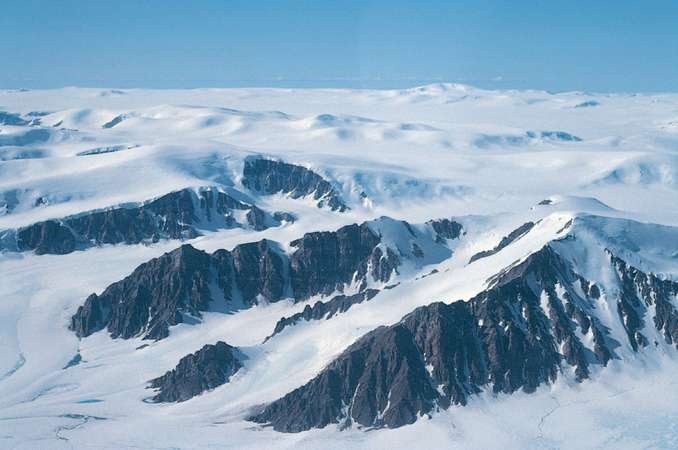
Scientists made a surprising discovery: the glaciers in Canada's high Arctic absorbs carbon dioxide better than the Amazon rainforest.
The lead researcher of the project, Dr. Kyra St. Pierre, claimed that it was a "total surprise", given that there is a common knowledge that rivers are largely viewed as sources of carbon emissions.
The discovery happened while collecting meltwater samples on Ellesmere Island, in the territory of Nunavut, Canada where several glaciers flow into Lake Hazen. Dr. St. Pierre said that this research was conducted because nobody knows what happens if meltwaters flow into rivers and downstream lakes, despite the world know the state of glaciers globally.
The carbon emissions of the river came from the organic materials -- mostly plant and fish -- it contains. As decomposition happens, carbon dioxides were released, and most of these came to the atmosphere.
Glacial rivers, on the other hand, is not very hospitable to aquatic life due to its silt-laden composition, which leads to less organic decay. But how does it absorb carbon dioxide? Through the geological process called "chemical weathering".
Glacier contains fine sediments like silicate and carbonate. When it mixes with rushing waters, a series of chemical reactions happen which will result in the absorption of carbon dioxide from the atmosphere and sinking it below the river.
The research team discovered that chemical weathering can absorb the carbon dioxide from at least 42 kilometers from the headwaters of the river.
The researchers said that these rivers can consume a "phenomenal amount" of carbon dioxide, and when scaled up to the total size of the Amazon Rainforest, these rivers are better.
More sampling is doing on other meltwaters in the Canadian Rockies, and the researchers expect to find similar results.
This discovery hinted that there are a lot of "unseen or unappreciated" methods of fighting against the rapidly changing climate due to intense carbon emissions. St. Pierre said that this gives us a message that we know little about these systems.
However, this discovery is just a "short-term" benefit and illustrates the rapid decline of glaciers in northern Canada, according to St. Piere. She also said that glaciers are finite, and we could be losing more than gaining from this method before we can fully understand it.
The previous study found out that glaciers are shrinking faster than previously predicted.
The case was the same as Lake Hazen, St. Pierre's subject of research. According to research published last year in the journal Nature Communications, since 2007, the meltwaters that are entering the lake has increased by tenfold. Not minding the benefits that St. Pierre's team found out, the same particles responsible for carbon absorptions are resulting in sedimentation, giving the water a "cloudy" appearance. The researchers speculated that it will affect the aquatic life in the lake, as it is often difficult for the fish to navigate the murky waters.
Moreover, the Canadian Arctic is melting at a rate faster than the rest of the world, and St. Pierre was hoping it will not be too late for the region to understand the effect of climate change.
© 2025 NatureWorldNews.com All rights reserved. Do not reproduce without permission.

